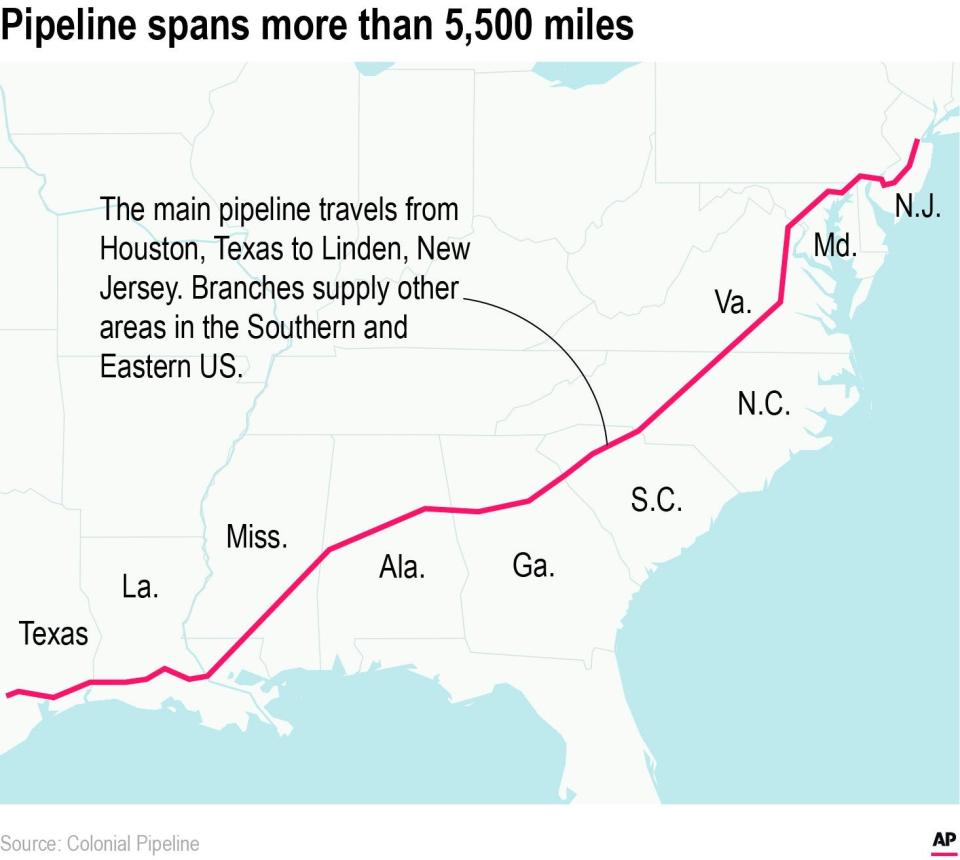Panic buying: Florida governor declares state of emergency over gasoline supply
Florida Gov. Ron DeSantis on Tuesday evening declared a gasoline-related state of emergency, including activating the Florida National Guard "as needed."
The move comes after the operator of a major pipeline that transports fuel across the East Coast was victimized by a ransomware attack and halted operations.
The governor, in an executive order, said "the disruption of Colonial Pipeline operations poses a significant and immediate threat to the continued delivery of such fuel products to the State of Florida."
Florida’s gasoline supplies are largely unaffected by the outage, but a rash of panic buying starting Monday – especially across north Florida – has caused local shortages.
What you need to know: About the Colonial Pipeline cyberattack, gas prices, shortages
More: Colonial Pipeline looking to 'substantially' restore operations by end of week
That came at the same time that Pensacola area gas stations are experiencing a critical shortage caused by a cluster of issues, including an Environmental Protection Agency shutdown of a distribution site in the city.
DeSantis, at a bill signing in Jacksonville for a new school choice law earlier in the day, said the state would "relax restrictions" to allow trucks to more speedily refuel affected parts of the state. He also cast blame on the federal government for what he said was an inadequate response to what was "essentially a cyberattack on critical infrastructure in our country."

"I think this is something that demands serious federal attention," he said. "You can't just say it's a private pipeline ... The U.S. government needs to be involved. We need the federal government to step up and help."
The executive order is in effect for 30 days. Among other provisions, it:
Directs "all state, regional and local governmental agencies, including law enforcement agencies, to identify personnel needed ... to assist in meeting the response, recovery, and mitigation needs created by this emergency."
Orders "the Adjutant General to activate the Florida National Guard, as needed, to deal with this emergency." Major General James O. Eifert oversees approximately 12,000 soldiers and airmen, according to a state website.
Says the Governor "may suspend all statutes and rules affecting budgeting to the extent necessary to provide budget authority for state agencies to cope with this emergency."
Authorizes the Secretary of the Florida Department of Transportation to "suspend enforcement of registration requirements ... for commercial motor vehicles that enter the State of Florida to provide fuel, emergency services, or supplies."
Waives "size and weight restrictions ... on vehicles supporting emergency relief efforts by transporting gasoline, diesel fuel, jet fuel, and other refined petroleum products in Florida."
Makes it "unlawful ... for a person to ... sell at an unconscionable price ... any essential commodity," or in other words, outlaws price gouging.
Florida Attorney General Ashley Moody runs the state's price-gouging hotline, toll-free, at 1-866-9-NO-SCAM (866-966-7226). A price-gouging complaint form is also available online at http://www.myfloridalegal.com/Contact.nsf/PriceGouging!OpenForm.
Additional reporting from USA TODAY and staff of the USA TODAY Network – Florida.
This article originally appeared on Tallahassee Democrat: Florida gas shortages force DeSantis to issue state of emergency

